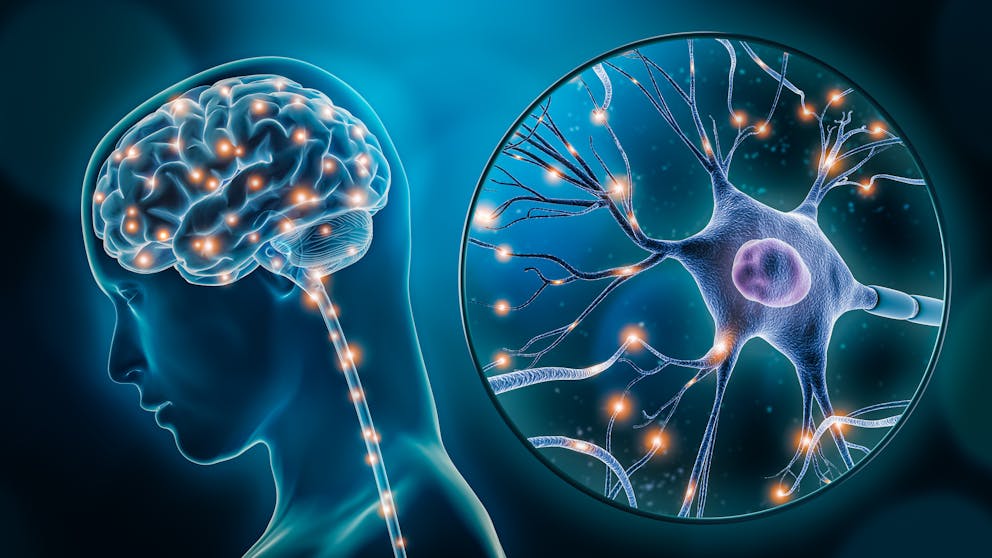Vitamin B1 (Thiamine) Deficiency Signs, Symptoms, and Treatment Benefits
Vitamin B1 (Thiamine) Deficiency Signs, Symptoms, and Treatment Benefits
Picture your body as a high-powered engine, where Vitamin B1 is the spark plug igniting energy production. It's not something we often think about until that 'spark' starts to fade—cue the numb toes, foggy brain, and unsteady heartbeat.
But what if I told you replenishing this tiny nutrient could turn things around?
Sure enough, diving into the world of Vitamin B1 opens up a treasure trove of health perks for those who've hit a snag with deficiency symptoms. From shoring up nerve health to giving your mood a sunny outlook, there's more to this vitamin than meets the eye.
Stick with me, and by the end of our journey together, you'll have unlocked secrets on how tweaking your diet or adding supplements can put that spring back in your step!
Understanding Vitamin B1 and Its Role in the Body
Vitamin B1, known as Thiamine, is like a covert operative working behind the scenes to keep your energy production smooth. It plays a pivotal role in converting food into fuel for your cells.
Thiamine acts as an essential cog in the metabolism of glucose and carbohydrates – think of it as that one friend who always has your back when you need to get things done.
Without enough thiamine, our bodies would struggle with basic tasks like maintaining muscle function or keeping our hearts beating correctly.
This unsung hero doesn't just stop at energy; it's also involved in nerve cell function. So ensuring we've got enough on board is crucial for overall health and well-being.
Recognizing the Symptoms of Vitamin B1 Deficiency
Peripheral Neuropathies and Nervous System Effects
Vitamin B1, or thiamine, is like your body's spark plug – it gets your engine running by helping convert food into fuel. But things start to misfire when you're low on this vital nutrient.
You might feel numbness or tingling in your hands and feet as if they've fallen asleep – except they don't wake up with a good shake.
This isn’t just an odd feeling; it’s a red flag for peripheral neuropathy caused by B1 deficiency. Pain can strike out of nowhere, turning a stroll into an ordeal, while burning sensations may have you convinced you’re walking on hot coals instead of carpet.
Autonomic Nervous System Disorders
Beyond those pesky pins-and-needles feelings, vitamin B1 deficiency can mess with more than just movement—it also hits the autonomic nervous system.
Think about how frustrating it would be if eating turned into a slow-motion scene because your stomach decided to take its sweet time digesting—that's gastroparesis for you. And GERD? That’s heartburn cranked up to eleven.
Sweating excessively during a nerve-wracking presentation makes sense, but sweating buckets while binge-watching TV doesn’t—and that could happen with enough thiamine missing from the picture.

Mental Health and Cognitive Implications
Your brain loves glucose almost as much as social media loves cat videos—thiamine helps ensure it gets plenty of its favorite snack.
Without enough thiamine, though? Your mood might dip lower than expected, and nervous tension can ramp up faster than fans rushing at concert gates.
Cognitive issues sneak in, too: concentration takes a hit harder than forgotten coffee on Monday mornings; short-term memory starts slipping through fingers like water; irritability spikes over trivial stuff like mismatched socks.
—not exactly what anyone wants for their mental health portfolio.
Dietary Sources and the Risk of Deficiency
Thiamine, or Vitamin B1, is like a silent partner in a dance troupe – it doesn't stand out on its own, but the whole performance falls apart without it. This nutrient helps our bodies turn food into energy, which is especially important for those who love their carbs.
High Carbohydrate Diets and Diabetes Connection
If you're always reaching for bread or pasta, listen up. Your high carb intake could be leading your body to cry out for more thiamine.
And if you have diabetes, this call gets even louder because your kidneys might be flushing out what little B1 you do have left at an alarming rate, according to research.
It's a sneaky cycle where insufficient B1 means your body can't use carbs efficiently, leading to higher blood sugar levels – bad news, bears.
But don't fret just yet. You'll keep your taste buds and cells dancing happily by picking foods rich in thiamine, like nuts, seeds, and whole grains, instead of processed snacks with zero nutritional value (sorry, doughnuts).
The Protective Role of Vitamin B1 in Nerve Health
Think of your nerves like electrical wires and Vitamin B1 as the insulation that keeps them safe. Without this essential nutrient, also known as Thiamine, our nervous system can suffer from a lack of myelin sheath formation—a protective layer crucial for nerve function.
Vitamin B1 doesn't just build defenses; it acts like a bodyguard against oxidative stress with its antioxidant properties. It's one tough cookie for neutralizing harmful molecules that threaten nerve health.
Those who ensure their diet includes enough Thiamine are giving their nerves VIP treatment—think of it as an all-access pass to optimal neural performance. But skip out on this vital vitamin, and you're rolling out the red carpet for potential damage.
Treatment Benefits of Vitamin B1 Supplementation

Mental Well-being and Positive Attitude Enhancement
Imagine feeling like you're walking through life with a little more spring in your step. That's what getting enough Vitamin B1 can feel like for your mood. It turns out this powerhouse nutrient is pretty good at reducing nervous tension and supporting mental well-being.
Studies have shown that when people bump up their intake of Thiamine, they often report better moods. So if you're feeling down or stressed, it might be worth considering whether you’re getting enough B1.
Alleviating Motion Sickness and Restless Leg Syndrome
You know that annoying feeling when you can't keep your legs still at night? Or that woozy sensation on long car rides? Well, Thiamine might be the unsung hero here.
Adequate levels of Vitamin B1 have been linked to improvements in conditions like motion sickness and restless leg syndrome.
While not everyone will experience these benefits, there's certainly potential for relief with proper supplementation—a welcome thought for anyone looking to smooth out those jumpy legs or queasy trips.
Addressing Severe Deficiencies and Associated Health Risks
Vitamin B1, or thiamine, isn't just another item on the nutrition label—it's a VIP in your body's energy club. Without enough, you're not just low on fuel; you risk serious health complications.
A profound lack of Vitamin B1 can invite a nasty party crasher named Beriberi to mess with your cardiovascular system—think fatigue and leg swelling—and wreak havoc with neurological functions, leading to confusion and memory problems.
And if that wasn’t bad enough, Wernicke-Korsakoff syndrome might join in, especially if alcohol has been hogging the guest list too often. This unwelcome duo impairs brain function and affects balance so much that walking straight could become an Olympic sport for those affected.
But don't fret. Proper supplementation can be like security at this shindig—a way to kick out unwanted guests before they ruin the fun. Return to rhythm by ensuring your diet hits all the right notes with thiamine-rich foods or quality supplements when necessary.
Maximizing the Efficacy of Vitamin B1 Supplementation
To get the most out of it, choosing natural forms over synthetic ones can be a game-changer.
Choosing Natural Forms Over Synthetic Variants
Natural forms of Vitamin B1, such as Allithiamine and Benfotiamine, pack more punch because our bodies better absorb them. Think about it like premium fuel for your car; you'll notice the difference in performance.
Synthetic versions might be easier on your wallet, but think long-term about what your body needs to stay in top form.
The Role of Magnesium in Enhancing B1 Absorption
Magnesium isn't just there to strengthen bones—it also plays wingman to Vitamin B1. It helps usher thiamine into cells so they can do their job effectively. Without enough magnesium, even high doses of vitamin B1 may not give you the boost you need.
To ramp up those benefits from Vitamin B1 supplements, ensure you have plenty of magnesium on board first. It's all about teamwork.
Conclusion
Think of your body as an engine and Vitamin B1 as the spark. Without it, you're running on empty. Remember those tingles in your toes? That's a sign to refuel.
Vitamin B1 deficiency symptoms and treatment benefits should be top of mind if energy dips or nerves falter. Your diet could be the key; tweaking it might reignite that lost spark.
Ensure nerve health is on your radar because these vitamins work wonders for your wiring. Boosting with supplements can brighten moods and ease those jitters, too.
If things felt off-kilter before, understanding Vitamin B1's role offers a path back to balance. So take these insights, fuel on thiamine-rich foods or supplements, and watch vitality return stride by stride!
Tags

Popular
08/21/2024
55.7K views
02/23/2025
46.8K views
11/18/2024
281.1K views
03/18/2024
11/21/2022




